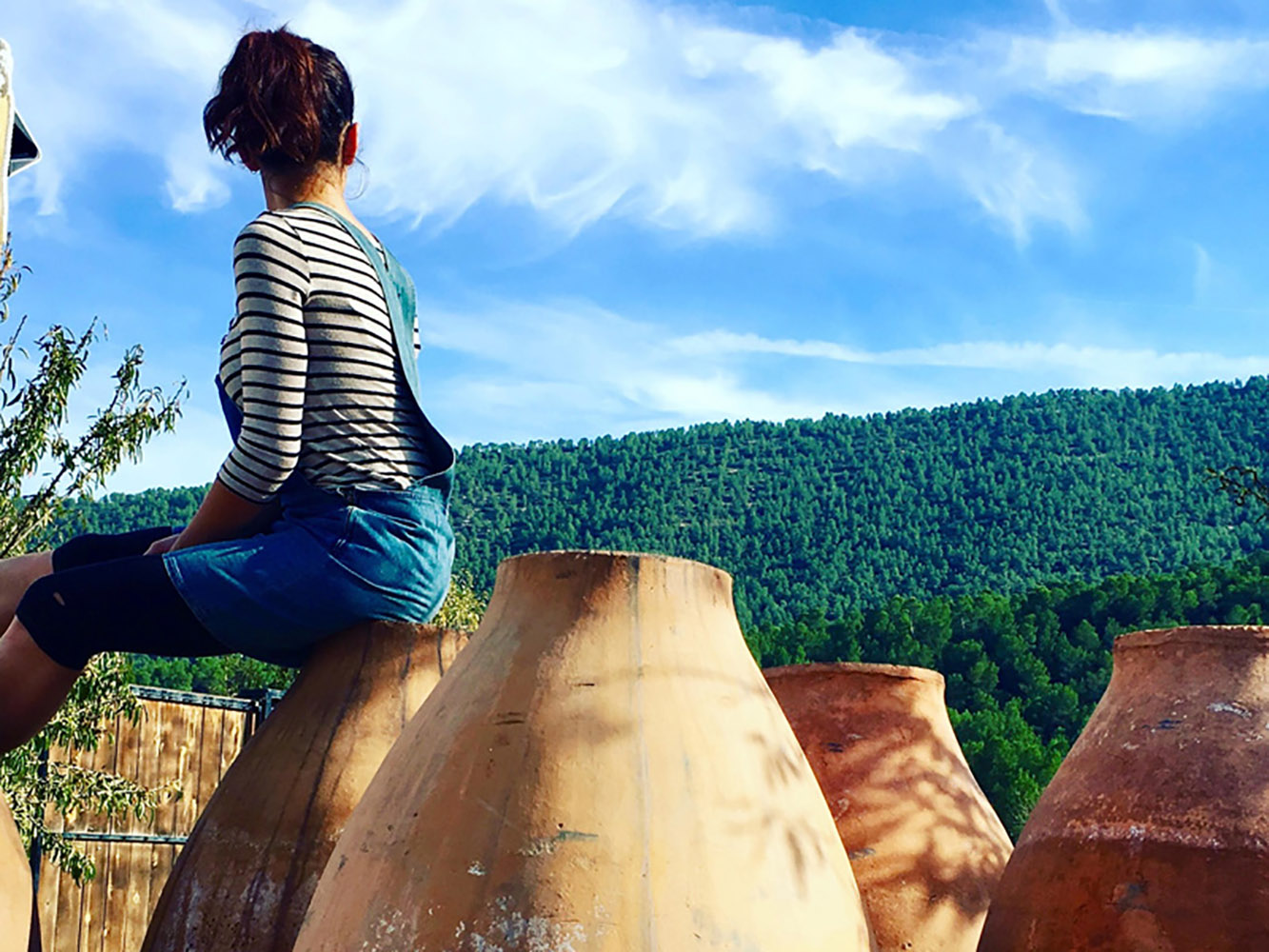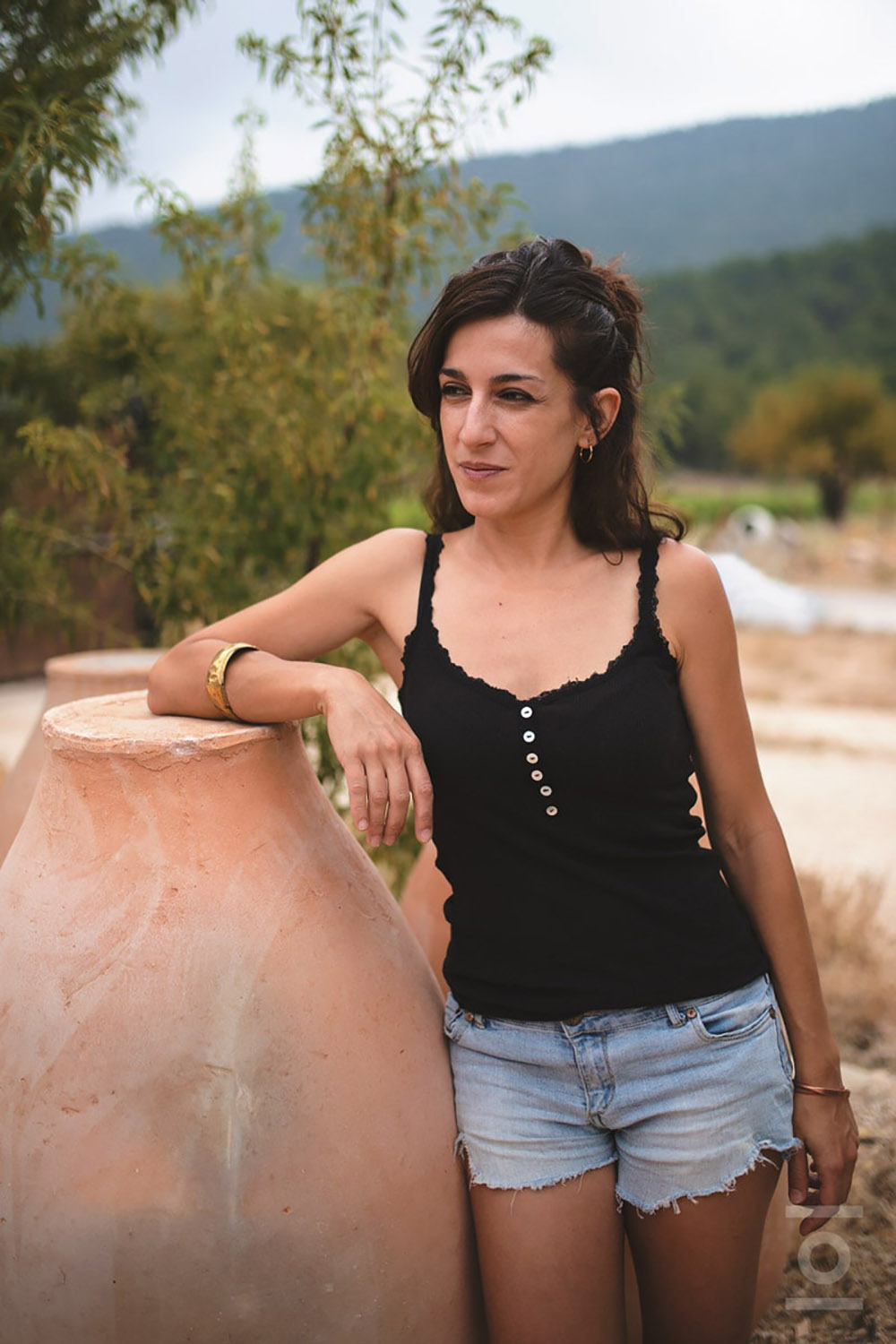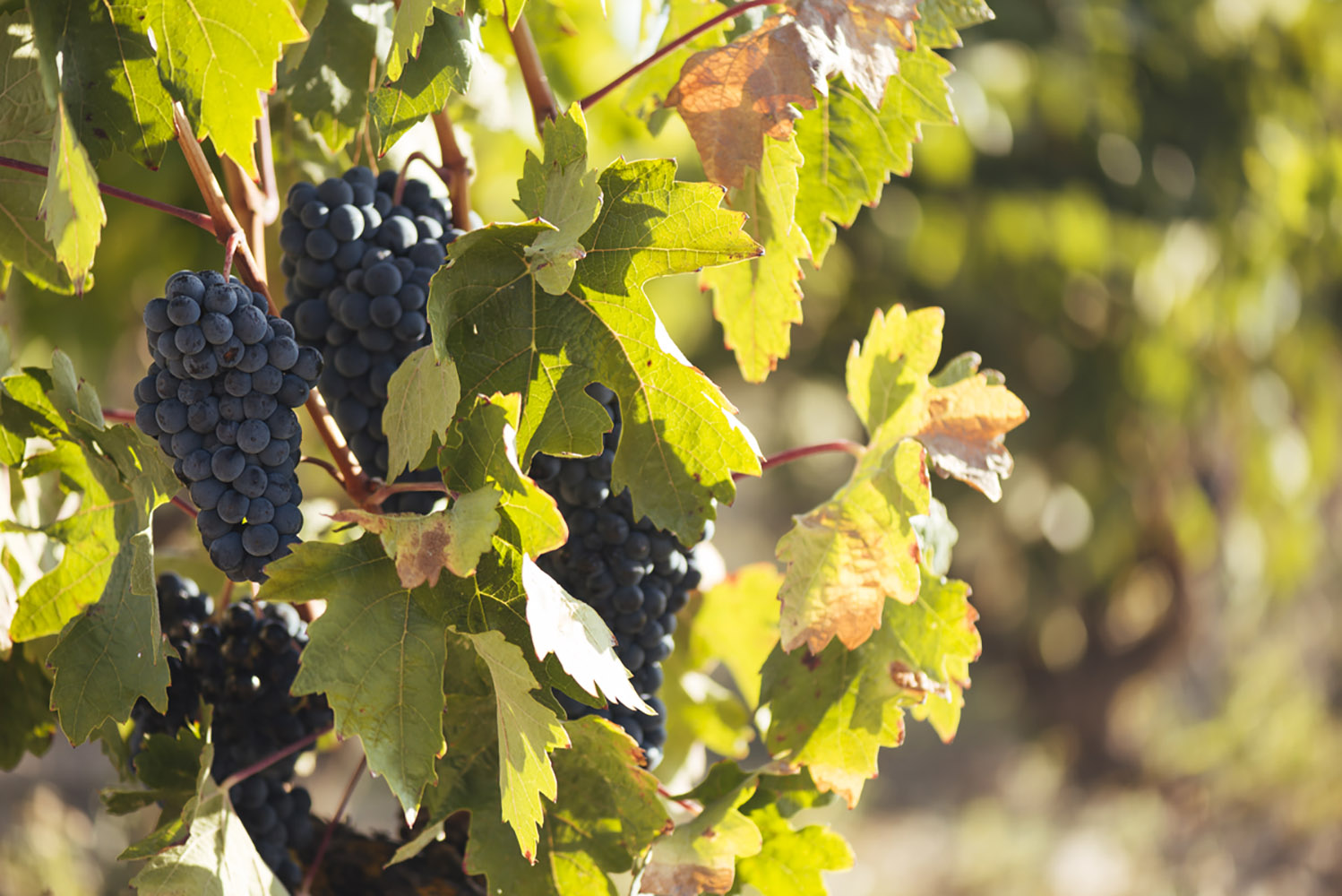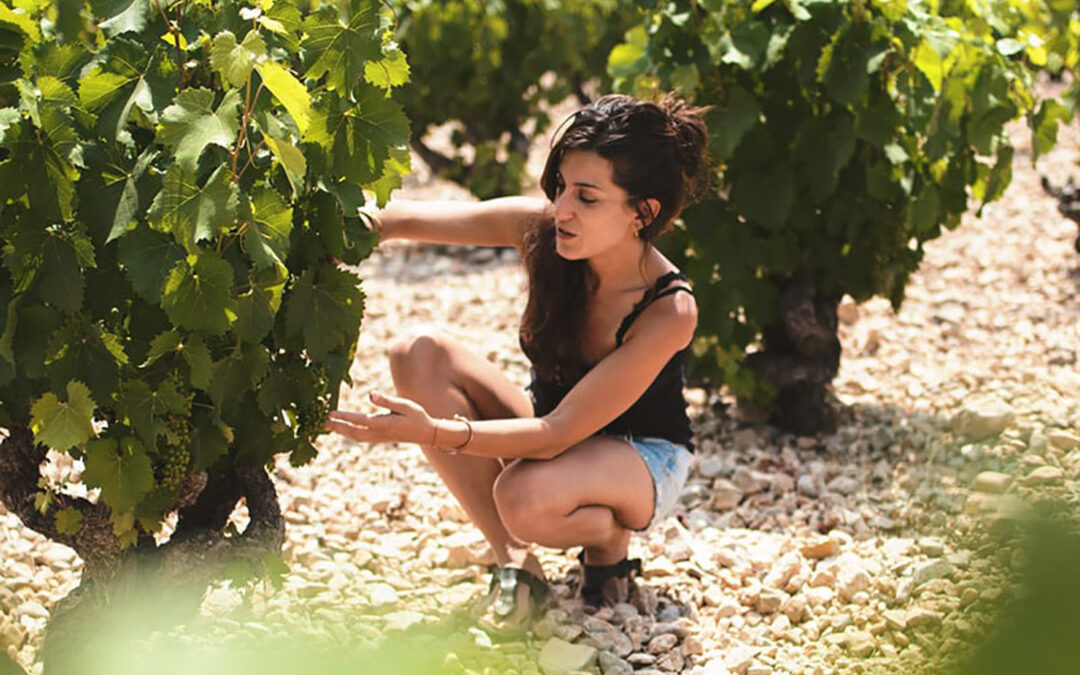Returning to her home region of Murcia, Julia Casado worked with a number of local wineries, including Vega Sicilia and Casa Castillo. It was there that La del Terreno was born and, in 2015, Julia made her first vintage in their cellars.
In 2016, Julia moved her operation out of the winery at Casa Castillo, building her own winery from modular units and railway sleepers in the small appellation of Bullas. She has produced her wine there since.
Music and Wine
It has not been an easy journey for this Murcia-born young woman. The daughter of a biologist and a psychologist, Julia’s first passion was music. The first time she heard a cello, she knew she wanted to learn to play it.
In her second year studying agricultural engineering (“I didn’t like it at all”, she confesses), music won the day –she moved to Germany to learn the language and become an orchestral musician. But the studies proved to be too demanding, she says: “I ended up overwhelmed and returned to Spain to finish my agricultural studies”.
At that moment of uncertainty, a rural development course in Havana, Cuba, changed the way she felt about music and agriculture. Julia finished her cello studies in Frankfurt and went on to study oenology at Miguel Hernández University in Elche. Interestingly, she wrote her thesis about blends of Monastrell with international grapes -that was the trend back in 2005.
“Wine and music have a lot in common with each other,” says Julia. “The concept of harmony is very much present in both, as is a certain degree of tension; and neither of them makes sense if they are not shared with others. There is a lot of coded information in music and wine. It’s also interesting how sensitive wine is to vibrations”, she adds.
After several work experiences in wineries in Spain and abroad (Josef Biffar in Germany, a three-month stint at Vega Sicilia, one harvest at Ortega Fournier in Mendoza), Julia returned to Murcia and continued her training in Jumilla with Hacienda del Carche, Casa de la Ermita and Casa Castillo. La del Terreno 2015, her first vintage of this wine, was made in Casa Castillo. It had a white label which later changed to black.
Adventures in Bulla
“I didn’t set out to have my own winery, but as I tasted more wines I realized that I would not be able to become a wine producer if I continued to work for others. In 2016 I jumped in my car and drove to Bullas. Many people had told me that the region was very different from the rest of Murcia: green and with vineyards at a higher elevation.”
Julia did what any producer would do to find out where the best vineyards are: she mingled with the locals in the village bar. She soon discovered that a majority of vineyard owners were members of Bodegas del Rosario, the largest cooperative in Bullas. They encouraged her to start a partnership with the cooperative and become a member of the DO Bullas. She was also offered a space in their large facilities to produce her own wines, but Julia had already decided that she wanted to have a place of her own.
She rented a plot in the countryside next to a small renewable energies school and bought modular metal structures to enclose the 66 m² she was authorized to build on this protected area. The result: a fermentation room and an ageing cellar separated by a sliding door. Train sleepers support the entire structure.
For Julia, Bullas is “like a wine-growing oasis where old vineyards have been preserved by many small landowners”. Nevertheless, her first vintage in the area was a nightmare. She had no electricity and lost a large quantity of grapes because she was unable to handle them in such precarious conditions. She managed to fill just over 1,000 bottles in the case of La del Terreno and 500 of La Cañada del Jinete, the name of the area where she built the winery. La Cañada del Jinete is a limited-production, single-vineyard Monastrell; the wine is fermented in clay and aged in Foudre. Grapes for both wines are sourced from traditional, head-pruned vines.
“The uprooting of old vines is a worrying trend in the area, but growers know that small businesses like mine can contribute to preserving the area’s heritage,” she points out.
“The best thing about starting from scratch is that I have been able to choose the place and the vineyards I want to source grapes from,” says Julia. She doesn’t own any land because she cannot afford it but works closely with local grape growers.
“Perhaps it is because I got quite late into wine, but I really value coherence and ethics. I’m interested and passionate about producers who are deeply attached to their land. Seeing wine as art implies an emotional bond. I could not make wine in an area that I’m not in love with,” she points out.
From The Land
La Del Terreno means ‘From The Land’. Julia tends to 50-year-old bush vines, situated on sandy loam soil in three different villages in the north-west region of Murcia: Moratalla, Cehegín and Bullas. Covering a total of 4.5 hectares – all of them are from 800 – 1.200 meters above sea level.
In 2016, Julia jumped in her car and drove to Bullas. Many people had told her that the region was very different from the rest of Murcia: green and with vineyards at a higher elevation. She dedicates herself to the traditional viticulture of Monastrell and chose the name ‘La Del Terreno’ as a nod to her roots in the region.
Julia is an independent, strong, and courageous producer who started this project on her own, with minimal intervention and no agrochemicals. This work results in incredibly expressive natural, modern wines.
Her musical sensibility shows in her wines. Monastrell can be a tough grape, especially from this hot Mediterranean climate. This grape variety can produce pretty rustic, chunky and bold wines, often very tannic and lacking charm. La del Terreno though is anything but. Julia has managed to make it sing in harmony with some of the region’s best. “Wine and music have a lot in common with each other. The concept of harmony is very much present in both, as is a certain degree of tension; and neither of them makes sense if they are not shared with others” she says.
Her wines are unrepeatable – because future vintages may not be vinified with the same style. Her viticulture work is natural and careful: organic and manual cultivation, conduction in glass, dry land, manual harvest in boxes of 15 kg, spontaneous fermentation with native yeasts, ageing of 9 months in used French oak barrels and bottling without filtering or clarifying or added sulphites.
Check out their range below!




